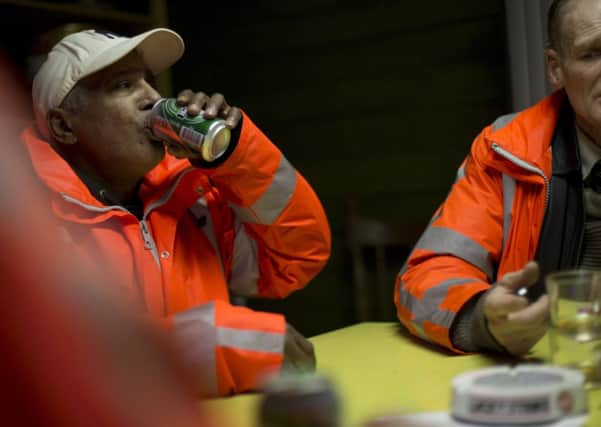Alcoholic street cleaners paid in beer


But it’s only noon, the men are alcoholics and the beers themselves are the pay packet.
In a pilot project, the city has teamed up with a charity in hopes of improving the neighbourhood and life for the alcoholics. Not by trying to get them to stop drinking, but instead by offering to fund their habit outright.
Advertisement
Hide AdAdvertisement
Hide AdParticipants are given beer in exchange for light work collecting litter, eating a decent meal, and sticking to their schedule.
Amsterdam east district mayor Fatima Elatik said: “For a lot of politicians it was really difficult to accept. ‘So you are giving alcohol?’ No, I am giving people a sense of perspective, even a sense of belonging. A sense of feeling that they are OK and that we need them and that we validate them and we don’t ostracise our people, because these are people that live in our district.”
In practice, the men – two groups of ten – must show up at 9am, three days a week. They start off with two beers, work a morning shift, eat lunch, get two more beers, and then do an afternoon shift before ending with their last beer. Sometimes they earn a bonus beer. Total daily pay package: €19 (£16), in beer, tobacco, and a meal; €10 cash.
For years, a group of around 50 rowdy, ageing alcoholics had plagued a park in east Amsterdam, annoying residents with noise, litter and occasional harassment.
The city had tried a number of solutions, including adding police patrols, and temporarily banning alcohol in the park.
Ms Elatik said the city was spending €1 million a year on various prevention, treatment and policing programmes to deal with the problem, and nobody was satisfied.
Meanwhile, the charitable Rainbow Group Foundation had been experimenting with ways to help alcoholics and drug addicts in the area, so the council asked it for advice.
The charity’s idea was simply that the troublemakers might consume less and cause less aggravation if they could be lured away from their park benches with the promise of free drink.
Advertisement
Hide AdAdvertisement
Hide AdRainbow leader Gerrie Holterman said beer was the obvious choice, because it is easier to regulate consumption.
Rainbow aims to encourage alcoholics to stop drinking and move them back to mainstream society and sees the work- for-beer programme as a first step.
Ms Holterman said: “I think now that we are only successful when we get them to drink less during the day and give them something to think about – what they want to do with their lives. This is a start to go towards other projects and maybe another kind of job.”
She conceded there has only been one individual so far who has moved from the programme back into a more normal life.
Numerous participants have found the rules too demanding and dropped out. But Ms Holterman said nuisance in the park has been reduced, neighbours are happy and there is a waiting list of candidates who want to participate.
Labour’s Ms Elatik said she could not quantify the cost of the current programme – its budget comes partly from donations to Rainbow, partly from city funds – but it is definitely less than €100,000.
One critic of the project is politician Marianne Poot, of the rival conservative VVD party. She praised the idea of forcing the men – who are already on benefits – to work.
She added: “But then it’s not proper to give them an extra payment in addition. This gives a completely wrong signal.”
Advertisement
Hide AdAdvertisement
Hide AdThe men who participate are a lively bunch. Many are obviously drunk at noon and perhaps not highly effective at picking up rubbish. Some said they are not alcoholics, just heavy drinkers.
The foreman of one group, Fred Schiphorst, takes his job seriously. He wears a suit and tie under his reflective vest, which he says gives him a feeling of dignity. He said he is treated with more respect in the neighbourhood. But he admitted his off-the-job drinking is still up and down.
Another participant is Karel Slinger, 50. He said his life has not been transformed by the programme. His alcoholism is not under control. But he said on the whole, things have changed for the better.
He added: “I can’t just sit still. I want something to do.”